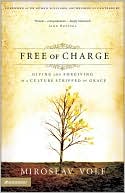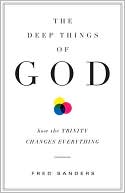"For the wrath of God is revealed from heaven against all ungodliness and unrighteousness of men, who by their unrighteousness suppress the truth. 19 For what can be known about God is plain to them, because God has shown it to them. 20 For his invisible attributes, namely, his eternal power and divine nature, have been clearly perceived, ever since the creation of the world, in the things that have been made. So they are without excuse"(Romans 1:18-20).
The gospel is the “power of God for salvation,” for the “righteous live by faith.” From here until chapter 12, Paul is attempting to flush these thoughts out, and he begins with the wrath of God. That is not surprising, since explaining salvation requires an understanding of what you are saved from. This text is so important that I’m just going to try and explain it.
First, I notice that God’s wrath is revealed against “all ungodliness and unrighteousness of men.” It is not wrath against the really bad stuff. In fact, notice what the “unrighteousness” is. Unrighteousness is revealed in “suppressing the truth.” It is not breaking a law or doing something shameful. Sure it comes to those things, but that is not where it starts. It starts with suppressing truth. To suppress means that you possess. You cannot suppress what you don’t have. When someone “suppresses” evidence in a trial it means that they possess the evidence and hide it. Stunning point here: all men possess the truth, and at the root of their sin is a suppression of it. Let that sink in for a moment, because that is a monumental statement.
Paul goes on to explain. Men suppress truth in that “what can be known about God is plain to them, because God has shown it to them.” And what has God shown them? “His invisible attributes” (read power, love, goodness, beauty, infinite value, greatness, etc) and especially his “eternal power” (i.e. He is all-powerful and can do whatever he wants) and “divine nature” (i.e. the fact that He is God). How are these things clearly seen? They have been “perceived . . . in the things that have been made.” Here is an illustration of what I think Paul is saying. You take a little flower, just a flower. You see bright colors, symmetry, soft, silken petals, and it’s living. It grows from a tiny seed in the dirt and becomes this radiant bloom. It’s so beautiful that artists attempt to photograph it, paint it, draw it. Some are very good, and the art is beautiful. But never, never is the art as exquisite as the flower itself. And it’s smell is so transfixing that companies attempt to mimic it, bottle it, and sell it to wealthy women, so they can have the aroma of a flower rather than their own natural body odor. Where does such beauty, such order and symmetry come from? It’s very existence shouts the overflowing power and goodness of the one who designed it, and it shouts that that One is worthy of our gratitude, homage, and praise. All men naturally suppress this. To bolster the point, here are a few interesting quotes.
“Our willingness to accept scientific claims that are against common sense is the key to an understanding of the real struggle between science and the supernatural. We take the side of science in spite of the patent absurdity of some of its constructs, in spite of its failure to fulfill many of its extravagant promises of health and life, in spite of the tolerance of the scientific community for unsubstantiated just-so stories, because we have a prior commitment, a commitment to materialism. It is not that the methods and institutions of science somehow compel us to accept a material explanation of the phenomenal world but, on the contrary, that we are forced by our a priori adherence to material causes to create an apparatus of investigation and a set of concepts that produce material explanations, no matter how counterintuitive, no matter how mystifying to the uninitiated. Moreover, that materialism is absolute, for we cannot allow a divine foot in the door” (Atheist Richard Lewotin in New York Review of Books).
“ I want atheism to be true and am made uneasy by the fact that some of the most intelligent and well-informed people I know are religious believers. It isn't just that I don't believe in God and, naturally, hope that I'm right in my belief. It's that I hope there is no God! I don't want there to be a God; I don't want the universe to be like that. . . . My guess is that this cosmic authority problem is not a rare condition and that it is responsible for much of the scientism and reductionism of our time. One of the tendencies it supports is the ludicrous overuse of evolutionary biology to explain everything about life, including everything about the human mind. Darwin enabled modern secular culture to heave a great collective sigh of relief, by apparently providing a way to eliminate purpose, meaning, and design as fundamental features of the world”(Thomas Nagel in The Last Word).
The way in which all men live their lives is by assuming that there is a kind of order to the world, that the world makes sense, that there lives have some sort of meaning and purpose. You don’t need a religion to feel this. It is universal in every culture. Even those who reject such things must admit that they live as if they are true. And all of this assumes a God. God is the elephant in everyone’s room. He may be the subject constantly ignored, but not because of lack of information. Paul’s conclusion, then, is that all men are “without excuse.”









1 comment:
This is a kicker text. This is where the line is drawn. This is the wrath of God, something we don't want to think about. It is something that we can put out of our minds, but when we do, we are just inviting it into our lives. The wrath of God is terrifying. I remember a quote from C.S. Lewis which said, "Those in heaven said to God 'Thy will be done'. To those in hell, God said, 'Thy will be done.'"
Our will, our sin nature, all lead to destruction. That is hell, being left alone with ourselves, completely absent from God, doing our will. Well, first of all, we have never, and if saved already, will never feel the absence of God, so just the thought of being absent from God for an instant is terrifying. Jesus was absent from God on the cross, and it was enough to make Him cry out in agony, feeling the weight of all our sins and feeling completely absent from the Father. I would guess that that's why hell is supposed to be dark. The earth went dark during God's back turning. I never want to experience that wrath.
The problem is, what if people don't want to leave, that leaving their sins behind is too difficult, that they would rather feel infinite torment than be without their sins for one second. That is scary too, that is the power of sin. That's what the rich man was like when he talked to Lazarus, he never repented, but asked Lazarus to go to his brothers. That also brings up another point.
Abraham's response to the rich man was basically the latter part of the verses here, that God has clearly revealed Himself to us, so that we have no excuse.
In conclusion, I glory in God for being willing and loving to save me, so that I never need to feel the full wrath of God, ever.
Post a Comment